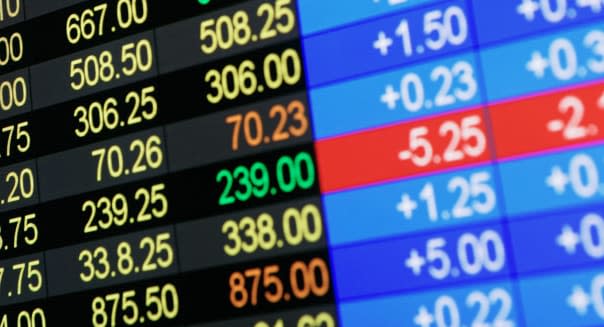Don't Let a Scary Economic Outlook Stop You From Investing

Increasingly, many Americans are worrying that the improving economy that helped drive stock markets higher over the past five years could hit the ceiling soon. Yet as tempting as it may be to bail out of stocks before the next recession hits, it's far smarter to stick with your investing strategy through thick and thin, and avoid the timing challenge of deciding when to get out of the stock market -- and when to get back in.
A recent survey from Northwestern Mutual looked at how optimistic Americans are about their finances. The results showed some modest improvement in investors' attitude toward their financial situations, with a slightly greater percentage reporting that they felt financially secure and a slightly smaller percentage reporting feelings of financial insecurity.
But the responses to questions about the state of the U.S. economy were troubling. Almost half of those surveyed believe the economy is "stuck in neutral," while 29 percent believe that the economy is moving in the wrong direction. Which dovetails with this fact: The study -- which surveyed 2,092 Americans online -- found that only 27 percent of respondents own stocks, while just 23 percent own mutual funds.
Letting the Economy Affect Your Investing Judgment
From a intuitive standpoint, it seems sensible to try to tailor your investing strategy to the prevailing conditions. When you look at the actual results of such a tailored approach, though, it's clear how much damage you can do to your long-term profits by over-managing your portfolio this way.
Motley Fool analyst Morgan Housel recently looked at a simple scenario, comparing three investors who used different strategies. One invested the same amount every month, regardless of economic conditions. The other two investors stopped investing periodically when economic conditions deteriorated. One stopping during recessions, the other stopped six months after recessions started and started up again six months after the recessions ended.
Housel found that over the long haul, investors who abandoned stocks during recessionary periods sacrificed 40 percent to 50 percent of what they could have earned by investing consistently throughout those periods. The reason: The stock market is a forward-looking reflection of sentiment, so if you wait until a recession ends to jump back in -- let alone an extra six months on top of that -- you'll be hopelessly behind and miss out on big gains. Moreover, waiting until a recession is officially recognized usually won't protect you from substantial losses, as stock prices tend to anticipate future economic problems.
Those who have shorter time horizons might worry about the risk involved in investing. But even over shorter periods, you'll rarely get burned by investing. 2008 and 2009 were the first two years since the Great Depression that 10-year average returns for the S&P 500 went negative, and since then, they've rebounded sharply. Moreover, even during those two terrible years, if you used a common balanced investing approach -- with half your portfolio in stocks and half in bonds -- you still earned an average annual return of between 3.5 percent and 4 percent over the previous decade.
It's tempting to trick yourself into thinking that you can avoid investment losses by paying attention to the state of the economy. But time and time again, investors have sabotaged their overall returns by trying too hard to avoid downturns, not to mention by making mistakes about when they would actually take place. The best strategy is to admit that market timing is a futile pursuit, trust in the power of dollar-cost averaging, and instead to consistently invest in a mix of stocks and other investments that reflects your overall risk tolerance.
You can follow Motley Fool contributor Dan Caplinger on Twitter @DanCaplinger or on Google+.

